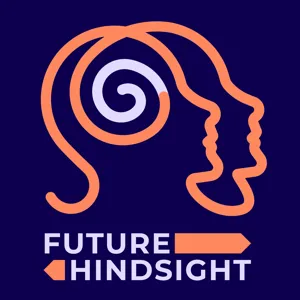Podcast Summary
Reforming the legislative filibuster in the Senate: Biden's push for talking filibuster could impact democracy and government's ability to address pressing issues, showing the importance of persistence and small adjustments for substantial progress
President Biden is pushing for reforms to the legislative filibuster in the Senate, aiming to bring back the "talking filibuster" and make the process more time-consuming. This change, while seemingly small, could significantly impact the functioning of democracy and the ability of the government to address pressing issues like voter suppression, union protection, immigration reform, and more. Biden's decision not to eliminate the filibuster entirely but to reform it shows the importance of persistence and working within the system to achieve progress. This is a reminder that even small adjustments can lead to substantial differences, much like how minor speed bumps can slow down traffic and enhance safety in a community.
Misunderstanding led to the creation of the filibuster: The filibuster, a senate rule used to block legislation, wasn't intended for obstruction but originated from a historical misunderstanding
The filibuster, a senate rule used to block legislation, didn't originate from the constitution but rather as a historical accident. Aaron Burr, a vice president in the early 1800s, mistakenly believed that there was no need for a way to stop debate in the senate. This misconception led to the creation of the filibuster, initially intended to keep debate open, not to obstruct legislation indefinitely. Over time, its purpose evolved, and it became a significant obstacle to passing bills in the senate. Despite its importance in modern politics, the filibuster is not constitutionally protected but a mere rule created by a historical mistake.
A History of Filibustering in the US Senate: Filibustering, a tactic used by senators to delay or block legislation through lengthy debates, dates back to the late 1800s. It has been used for unrelated topics and disrupted the legislative process, but rules have been put in place to limit it.
The practice of filibustering in the United States Senate dates back to the late 1800s when senators would engage in lengthy debates to delay or block legislation. Senators like Louisiana Democrat Huey Long would filibuster by speaking on unrelated topics, such as recipes for salad dressing or the best way to fry oysters, for hours on end. This tactic was used to fill time and prevent votes on controversial bills. The longest filibuster on record was by Huey Long in 1935, which lasted for 15 hours and 30 minutes. Although it's impressive that senators could speak for such extended periods, it's important to note that these debates often disrupted the legislative process and prevented progress on important issues. Today, rules have been put in place to limit filibusters and require a supermajority vote to pass certain legislation. However, the tradition of lengthy debates continues to be a part of the Senate's legislative process.
Filibuster used to block civil rights legislation due to racism: The filibuster, a Senate procedural tool, was exploited to obstruct civil rights laws due to deep-rooted racism, delaying progress towards equality.
The filibuster, a procedural tool in the United States Senate, was used extensively during the late 1950s to block civil rights legislation due to deep-seseeded racism. Senators, most notably Strom Thurmond from South Carolina, would speak for hours on end, sometimes even drying out their bodies beforehand, to prevent the federal government from intervening in racial segregation. This tactic was used repeatedly to obstruct progress towards civil rights, making the filibuster a symbol of resistance to equality. Eventually, the Senate recognized the detrimental impact of these lengthy debates and implemented rules to limit their usage.
A contentious Senate rule allowing indefinite debate: The filibuster, originally meant for lengthy debate, is now used as a tool to block legislation, leading to political gridlock and calls for its elimination.
The filibuster rule in the US Senate, which allows a senator to delay or block a vote indefinitely, has evolved significantly over the years. Originally intended as a means to encourage extensive debate, it was modified in 1975 to allow senators to announce their intention to filibuster without speaking. This led to a surge in filibusters during the Obama administration, with Republicans under Mitch McConnell using it to block numerous nominees and legislation. The filibuster became a contentious issue, with both parties using it to impede the other's agenda. As a result, there is growing support to eliminate the filibuster altogether to ensure that the winning party can effectively pass their legislation. The filibuster has become a major roadblock to democratic process and compromise.
Discussions on changing the filibuster rule in the Senate: The Democrats are considering making the filibuster more time-consuming but not eliminating it, while the release of a new podcast episode is exciting news for fans of MTV's The Challenge
The Democrats are considering making changes to the filibuster rule in the Senate, but they don't currently have the votes to eliminate it completely. According to an interview with President Joe Biden, they may make it more time-consuming, but filibusters will still be able to occur. This discussion took place on The Daily Show with Trevor Noah, where the topic of the filibuster was compared to an annoying salad dressing. The filibuster allows the minority party to delay or block legislation, often leading to frustration for those wanting quick action. The wait is over for fans of MTV's The Challenge as their official podcast, All Stars 4, is now available on various podcast platforms.






